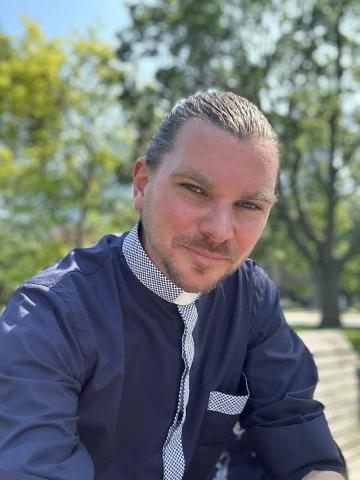So often, we as White people centre ourselves in the stories of others.

Learning
I grew up on stories.
Stories told through books and family.
Stories that delighted my soul and fed my mind.
Stories of adventure and fear.
As a child, I fell in love with the musical Big River based on the book The Adventures of Huckleberry Finn. I thought it was a great adventure and that Huckleberry Finn and Jim were on. I went on to read the book and would imagine myself rafting down the Mississippi with adventures at my fingertips. It was in my 20s that I discovered that the book was a story of White saviourism. It shook my core. How could I see this musical and read this book as something other than what it was? I spent the next several weeks relistening to the music and reading Twain’s text. Rereading this story through another lens taught me about my place in the stories I tell. So often, we as White people centre ourselves in the stories of others. For Huckleberry Finn this was the story of adventure. For Jim this was the story of fear. I often wondered, will we ever hear the story from Jim’s perspective? Will some of us ever know what it was truly like to live in fear of being enslaved?
I grew up on stories.
Stories told in quiet spaces where I was left to listen and wonder.
Stories that were presented from one side.
Stories that gave insight into deep-seated beliefs.
One of the earliest stories I was told was around the old wood stove at my grandparents’ friends’ cottage. My grandparents and their friends were sitting and talking about the recent break-ins that had occurred along their row of cabins. They quickly blamed the Indigenous people from the local reserve. They shared stories of their experiences of the Indigenous people from nearby and how they always locked their car doors when driving through the reserve, “just in case.” In the corner, my cousin and I sat listening to the adults. My cousin then told me he knew who had broken into the cabins. It wasn’t the people living on the reserve but rather a group of young guys from the nearby village where he lived. They had bragged about what they did at the local hockey arena.
I grew up on stories.
Stories that presented images of who we are.
Stories that formed how I was to think and feel.
Stories that were made up to appease the hearts and minds of those in power.
One night, I was lying in bed listening to my dad’s radio. He listened to talk radio a lot. That night it was a call-in show, and the topic was situational. The radio announcer asked the callers, “You see that a store has been robbed. A White man and a Black man are both running away from the store in opposite directions. Who do you chase?” I laid in bed listening to different people’s responses. I was puzzled. My young mind wondered, “Why don’t you just chase the person who robbed the store?” I didn’t realize at the time what the question was asking the callers to expose. As caller after caller shared their unconscious bias, I remember one said, “I’d chase the Black man.” “Why?” asked the announcer. “I don’t know. I just know I would chase him.” Today, as I tell this story, my young naïve mind is left wondering, who would I have chased? My adult mind now wonders, who would I chase today? Or why would I even chase a person?
I grew up on stories.
Stories that caused me to wonder.
Stories that confused me.
Stories that forced me to listen more closely.
Faith Reflection
Prayer
God, our Storyteller,
your wisdom is imprinted on our hearts.
Your guidance allows us to grow through learning.
You put before us a great quest to open our minds to the world.
Through you and with you,
we are called
to be a presence of willing growth,
to be a presence of hopeful engagement,
to be a presence of discerning our faithful witness.
Amen
Living It Out
- Consider the books you read as a child or young adult. How did these books present Indigenous or racialized experiences? If you were to revisit these books today, how would you approach them?
- Consider how the media presents stories of Indigenous or racialized experiences. How do you discern what is presented with biases?
- All three of the experiences I shared in this reflection occurred when I was a child. How do you talk with young people in your life about race? What biases might you present, consciously or unconsciously?
—Jeffrey Dale (they/them, he/him) is the Minister at Port Elgin United Church. Jeffrey is a minister, community educator, harm reduction advocate, and theatre practitioner. Previously, Jeffrey was the Minister for Justice and Faith Formation for Shining Waters and Canadian Shield Regional Councils.